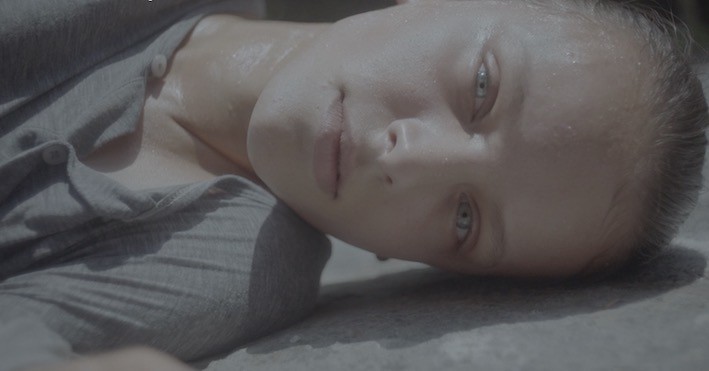Current Student Moara Passoni's Avant-Garde Documentary Screens at Virtual CPH:DOX Festival
Current Student Moara Passoni’s debut feature film, Ecstasy, screened online as part of the CPH:DOX Festival in late March.
The Denmark-based festival, one of the most prestigious in the documentary sphere, responded quickly to the restrictions on public gatherings in light of the COVID-19 pandemic by pivoting to an all-virtual festival. It was one of the first film festivals to do so in a season marked by cancellations and delays, including the cancellation of Tribeca Film Festival and postponement of Cannes.
Passoni defines Ecstasy (or Êxtase, in Passoni’s native Portuguese) as an avant-garde documentary walking the line between fact and fiction. Based on the real-life, intimate journals of women suffering from anorexia, the film is a journey into the psyche of a character pushing her body to the boundaries of delirium and ecstasy.
Passoni spoke with Filmmaker Magazine, who called her portrayal of anorexia “unlike anything...on screen before, and spot-on” and “a startlingly unusual coming-of-age story.”

Current Student Moara Passoni’s debut feature film, Ecstasy, screened online as part of the CPH:DOX Festival in late March.
The Denmark-based festival, one of the most prestigious in the documentary sphere, responded quickly to the restrictions on public gatherings in light of the COVID-19 pandemic by pivoting to an all-virtual festival. It was one of the first film festivals to do so in a season marked by cancellations and delays, including the cancellation of Tribeca Film Festival and postponement of Cannes.
Passoni defines Ecstasy (or Êxtase, in Passoni’s native Portuguese) as an avant-garde documentary walking the line between fact and fiction. Based on the real-life, intimate journals of women suffering from anorexia, the film is a journey into the psyche of a character pushing her body to the boundaries of delirium and ecstasy.
Passoni spoke with Filmmaker Magazine, who called her portrayal of anorexia “unlike anything...on screen before, and spot-on” and “a startlingly unusual coming-of-age story.”
“When I started this project I only knew three things,” Passoni told Filmmaker Magazine. “I needed to make a film in order to communicate what I had lived through during all those years, making sense of it and transforming it into a story. I needed to avoid the spectacle our society produces around the anorexic body because this stops real dialogue and blocks the experience. And I wanted to create a film in which the audience could touch the psyche of a young woman struggling to grow up. A kind of coming-of-age story in which the available model for aging doesn’t fit the character—so she has to invent her own.”
Screen Daily called the film “a thoughtful and often troubling account of a young woman’s eating disorders, as lived from the inside.”
“Expelled from school for kissing another girl, Clara is moved to a ballet school, where her problematic relation to her body is exacerbated–and explored visually to striking effect, notably in close-ups of slippered feet doing en pointe exercises,” wrote Screen Daily.
In the past year alone, Passoni has made quite a mark on the filmmaking landscape. As an Associate Producer and Co-Writer on Petra Costa’s Oscar-nominated documentary The Edge of Democracy, Passoni was part of the team responsible for one of the year’s most talked-about Netflix movies. Reaching an unprecedented number of viewers in Brazil and all over the world, the film was nominated for a Gotham Award and two Critics’ Choice Awards following its premiere at Sundance in 2019.
You can read more about Passoni’s bold new voice here, as part of the Diversity in Film series covering underrepresented groups in Film.

